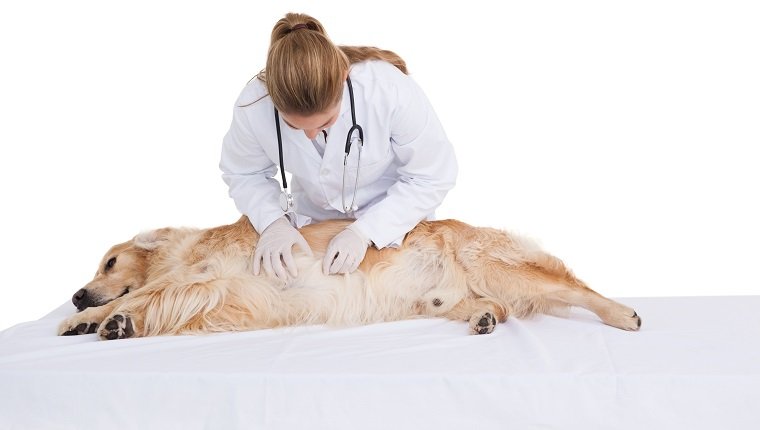Famotidine, also known by the brand name Pepcid, is a drug that can be given to dog to treat a variety of gastrointestinal conditions. It works by reducing the production of stomach acid in dogs, which can help treat stomach ulcers, acid reflux, and gastritis.
Although it is not FDA approved for veterinary use, it can be safely prescribed by veterinarians. You must always follow your veterinarian’s guidelines when giving your dog any kind of medication.
You can easily order famotidine online from Chewy’s pharmacy with your vet’s prescription. Here’s what you should know about the uses, dosage, and side effects of famotidine for dogs.
Uses Of Famotidine For Dogs

Famotidine is mainly used to treat gastrointestinal ulcers in dogs. The drug works by binding to receptors in the stomach lining, which results in reduced production of stomach acid.
Ulcers form when stomach acid or infections, commonly from H. pylori bacteria, damage the stomach or intestines. These ulcers can cause bleeding in the gastrointestinal tract, which can become very dangerous.
Reducing stomach acid production allows for these ulcers to heal more easily and can even prevent ulcers from forming.
The ability of famotidine to reduce stomach acid production is also helpful in the treatment of acid reflux, heartburn, esophagitis, and gastritis. It may also be given to dogs who suffer from renal failure to prevent the formation of ulcers.
Dosage Of Famotidine For Dogs

The following is a guideline for typical use of this drug in dogs and must not replace your vet’s advice for your individual pet.
The usual dosage of famotidine for dogs is 0.25 mg to 0.5 mg per pound of body weight given twice a day. Some forms of the drug are sold as over-the-counter medication, but you should not give it to your dog without veterinary approval.
Your vet will be able to tell you the proper dosage for your specific dog.
Pills usually come in a strength of 10 mg, though they also come in amounts of 20 mg. You should continue to treat your dog with the medication until your veterinarian tells you to stop treatment.
If your dog has ulcers caused by H. pylori bacteria, your dog will also likely be prescribed antibiotics.
Side Effects Of Famotidine in Dogs

The side effects of famotidine in dogs are generally rare and minimal, which is why it’s often a choice of veterinarians over other medications that treat gastrointestinal issues.
The reported rare side effects in dogs include:
- Loss of appetite,
- Headache,
- Constipation,
- Diarrhea
- Drowsiness.
Famotidine may not be safe for dogs with kidney or liver problems, stomach cancer, and sensitivity to similar medications. The drug can also pass from dogs through breast milk, so vets may not recommend it for dogs who are pregnant or nursing.
Another reason that vets recommend famotidine is that it doesn’t interact poorly with other drugs.
Overdoses are also rare, but they can happen. If you see signs of vomiting, diarrhea, low blood pressure, irregular heartbeat, or breathing difficulties, you should contact your vet right away.
Has your vet ever prescribed famotidine or Pepcid to your dog? Did it help treat their condition? Let us know in the comments below!




